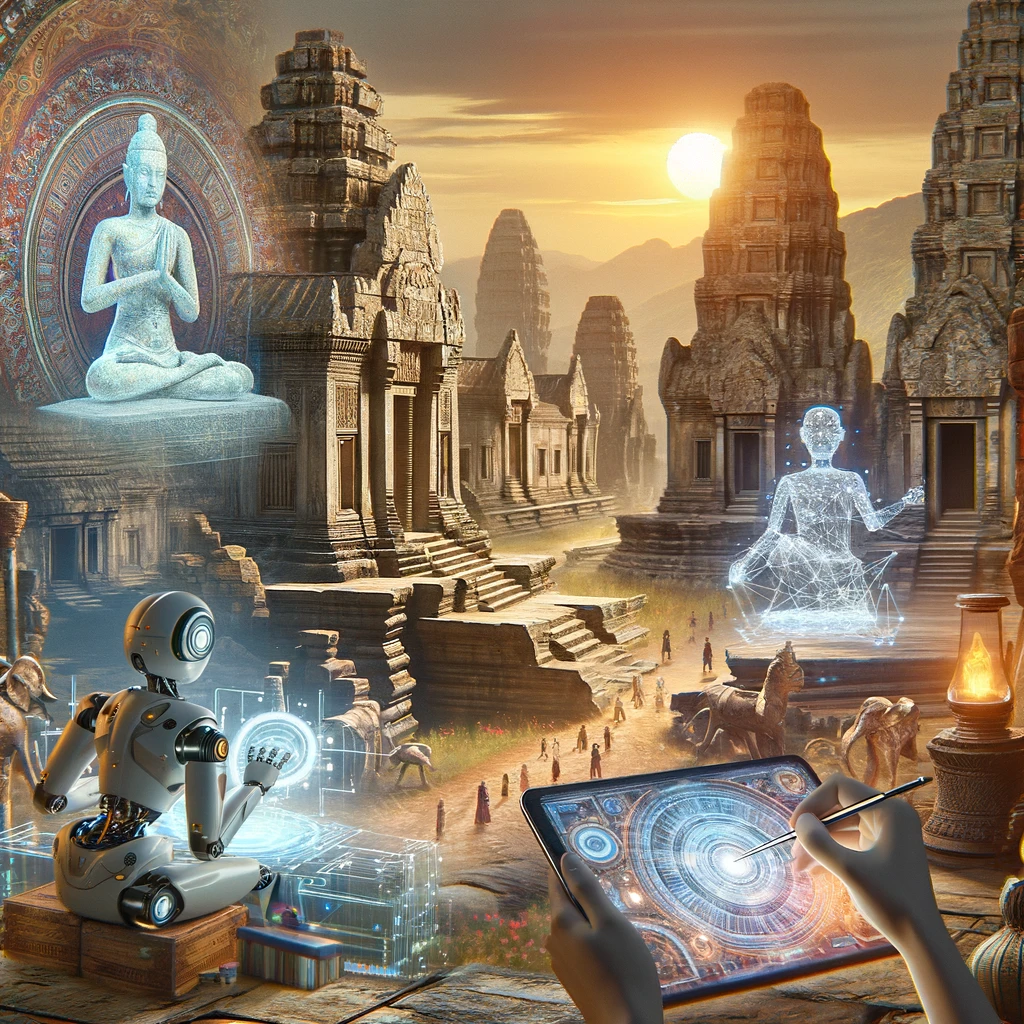The article “Artificial Intelligence for Digital Heritage Innovation: Setting up a R&D Agenda for Europe” published in Heritage discusses the transformative potential of AI in cultural heritage, emphasizing its role in preservation, access enhancement, and innovation. It outlines the current state of AI applications, challenges, and opportunities, and proposes a strategic agenda for integrating AI in cultural heritage to foster economic, social, and cultural growth. The focus is on leveraging machine learning for innovation, addressing sustainability, and inclusivity, and developing new business models within the European context. For more detailed insights, you can read the full article here.
In the age of rapid technological advancement, the intersection of artificial intelligence (AI) and cultural heritage presents a promising frontier for innovation. The integration of AI into the preservation and enhancement of cultural heritage is not just a technical evolution but a paradigm shift that offers the potential to redefine how we interact with, understand, and conserve our shared history.
Artificial intelligence, with its vast capabilities in data analysis, pattern recognition, and automation, stands as a beacon of hope for the future of cultural heritage. By harnessing AI, we can achieve feats previously deemed impossible, such as restoring ancient artifacts with unprecedented precision, creating immersive and interactive digital experiences for inaccessible sites, and providing global access to priceless treasures that were once confined to physical boundaries.
However, this journey is not without its challenges. The adoption of AI in cultural heritage requires careful consideration of ethical implications, the need for robust data protection measures, and the development of inclusive technologies that respect diverse cultural contexts. Moreover, the sustainability of AI-driven initiatives is a critical concern that demands innovative solutions to ensure that digital heritage projects can endure and thrive over time.
To address these challenges and harness the opportunities AI presents, a strategic research and development agenda is essential. Such an agenda would focus on fostering collaboration between technologists, historians, conservators, and policymakers. It would prioritize the development of AI technologies that are not only advanced but also ethical, accessible, and sustainable.
The integration of AI into cultural heritage is a journey filled with potential for a profound impact on how we preserve, interact with, and understand our shared cultural legacy. This endeavor calls for a concerted effort to explore the possibilities, navigate the challenges, and craft a future where technology and heritage together enrich humanity’s understanding of its past, present, and future.

